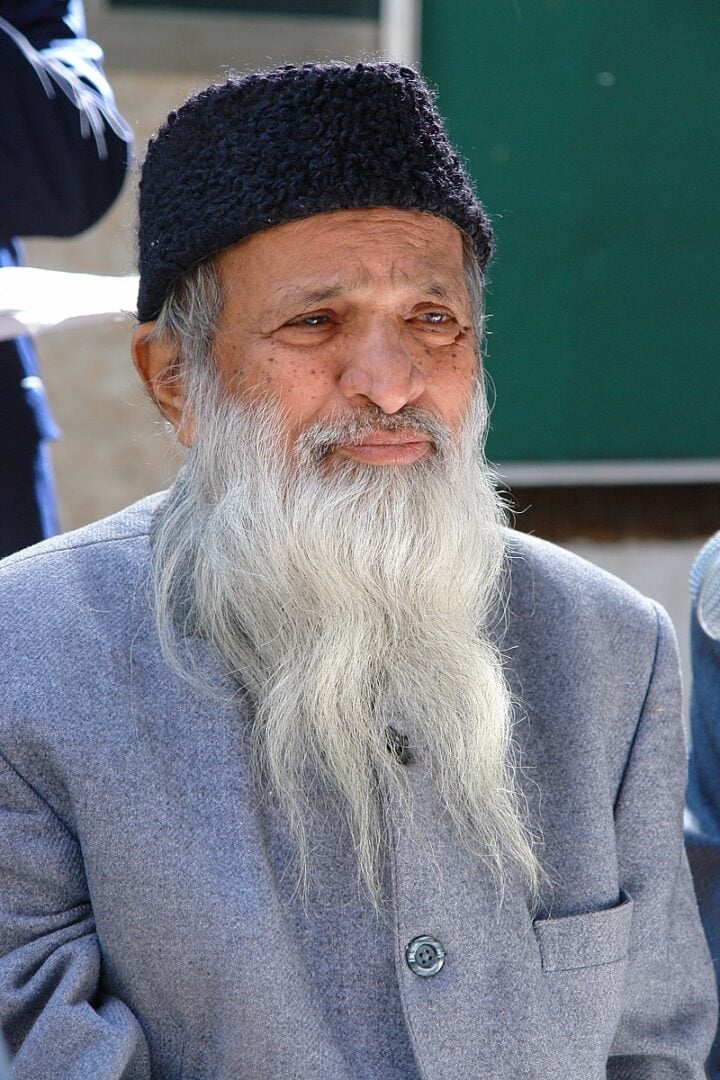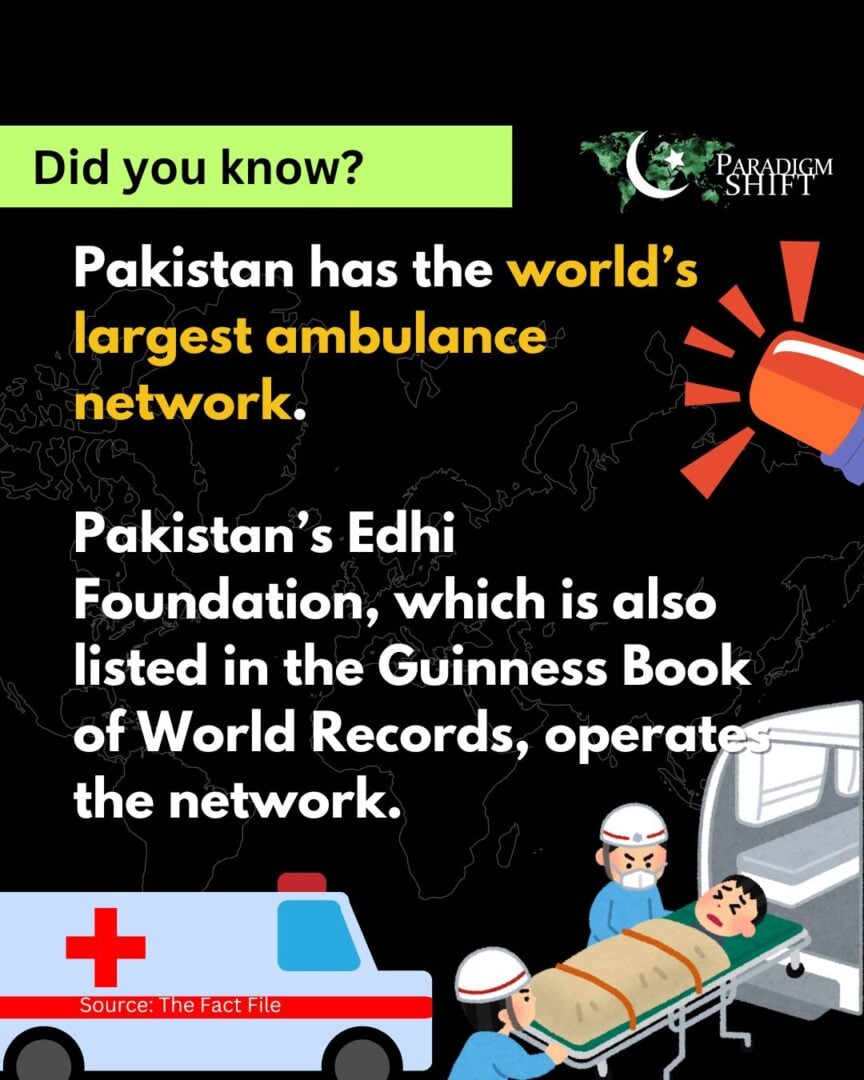Whenever we hear the word “superhero,” we assume someone who serves humanity at large and wears a cape because this is how superheroes are portrayed on television. While they indeed share the same intent of serving humanity, not all superheroes wear capes, instead, they dress up like ordinary humans. When talking about superheroes, the first person that comes to mind is Abdul Sattar Edhi. A real-life hero known for his selfless dedication to serving humanity without bias for anyone.
Early Life
Abdul Sattar Edhi’s early life experiences shaped his path toward becoming an eminent philanthropist. He was born in 1928 in a small village in the state of Gujarat, India. As his father was a small-scale trader, Edhi supported his family by working multiple odd jobs as a child and also contributed to charity. According to Edhi, his mother was the first person to inspire him to practice charity. He recalled that his mother would give him two paisas daily and ask him to spend one paisa on himself and the other on those in need.

Moreover, another event in his life that played an important role in shaping his vision was his mother’s illness. She was paralyzed when Edhi was around the age of 11, and he dedicated eight years of his life to taking care of her. His mother’s suffering made him realize that there may be millions of others going through the same situation without having someone to look after them. And it would not be incorrect to say that his mother’s death was the stepping stone in the establishment of Pakistan’s largest trust, known as the Edhi Foundation.
During the partition of the Indian subcontinent, he migrated to Karachi and soon became fully involved in charity work. Initially, he would collect medicines from the dispensary of a wealthy businessman in his neighborhood and distribute them to the poor and needy people for free.
From a Dispensary to the Edhi Foundation
Eventually, he established a free dispensary and a literacy center. From money he’d gotten from donations, he bought one room, in Mithadar, a region in Karachi, where he set up a small dispensary in the year 1951. His efforts to help people during the flu epidemic in the 1950s earned him recognition that helped expand his humanitarian services. The small dispensary transformed into a building that now had a free maternity center and school as well.
Furthermore, in the early 1950s, Edhi purchased a van to collect unclaimed bodies and bury them in accordance with the principles of Islam. With time his services continued to expand from free dispensaries to maternity clinics, and from ambulances to sending his team to assist internationally during epidemics, Edhi earned the title of “Angel of Mercy.”
A turning point in his life came when he got married to Bilquis in 1965, who served as a nurse in his maternity clinic. Both Edhi and Bilquis continued their philanthropic mission together and had four children from their marriage. Bilquis Edhi managed the cradle where abandoned babies and children were left.
Like all other social welfare workers, Edhi also faced pressure; religious clerics turned against him for providing services to non-Muslims, and later, his “Jhoola” service was also targeted for promoting sinful acts. However, this didn’t stop him and by 1974, his organization was registered in the name of “Edhi Trust,” now known as the “Edhi Foundation.” The foundation, including the Edhi centres, is solely run by donations given by individuals.
Today, the welfare organization established by Abdul Sattar Edhi is run by the heirs and includes 24-hour emergency services, over 1,500 ambulances, shelters, and other services. Additionally, projects like “Apna Ghar” were initiated where orphans and the homeless were given shelter, and apart from this, free meal services were also provided to the poor.

Despite all the recognition that this organization earned due to its extensive operations, Edhi remained a simple man committed to one goal: serving humanity. Edhi lived a very simple life, he preferred sleeping on a wooden bench and eating leftover bread. He was never fascinated or distracted by worldly pleasures, such as watching TV or listening to the radio. Regardless of his busy routine, he was personally involved in the daily activities of the Edhi Foundation, like driving the ambulances within the city to respond to emergencies and assist the injured. He would also interact with the residents of Edhi homes and remained humble throughout his life.
Abdul Sattar Edhi was recognized both nationally and internationally for his services to humanity. During his lifetime, he received 12 national and 14 international awards. He only accepted donations from individuals and never from the state, including those offered by the prime minister of India in 2015, when a deaf Indian girl was given shelter for a decade after being separated from her family upon reaching Pakistan on a train from India. He was also offered treatment abroad by the president of Pakistan for his kidney ailment, but he refused and chose to get treated in Pakistan. From all of these instances, one can easily infer that Edhi lived his life on his own terms.
Apart from the aforementioned, he was an advocate for organ donation. However, due to his ailment, most of his organs were unfit for donation. Yet, his corneas were donated to a visually impaired man who was awaiting an eye donation. On 8th July 2016, Pakistan lost a legendary humanitarian icon when Edhi passed away, but his legacy was continued by his wife and children.
Conclusion
Abdul Sattar Edhi was a living example of a hero who devoted his entire life to the service of the poor. He received donations from which he could have built himself a palace, but he chose to stay honest, live a simple life, and help those in whose name the donations were earned.
His dedication to serving the poor was inspired by his mother from a very young age, which started off with giving money to the poor and later led to the establishment of the largest charitable organization in Pakistan, with extended services to other countries as well. He was recognized globally and received multiple awards for his contribution to world peace. At last, the nation mourned the death of a legendary icon in the year 2016, but his legacy was continued by his wife and children.
If you want to submit your articles and/or research papers, please check the Submissions page.
The views and opinions expressed in this article/paper are the author’s own and do not necessarily reflect the editorial position of Paradigm Shift.
Ms. Mahira Saeed is a lawyer based in Quetta.


